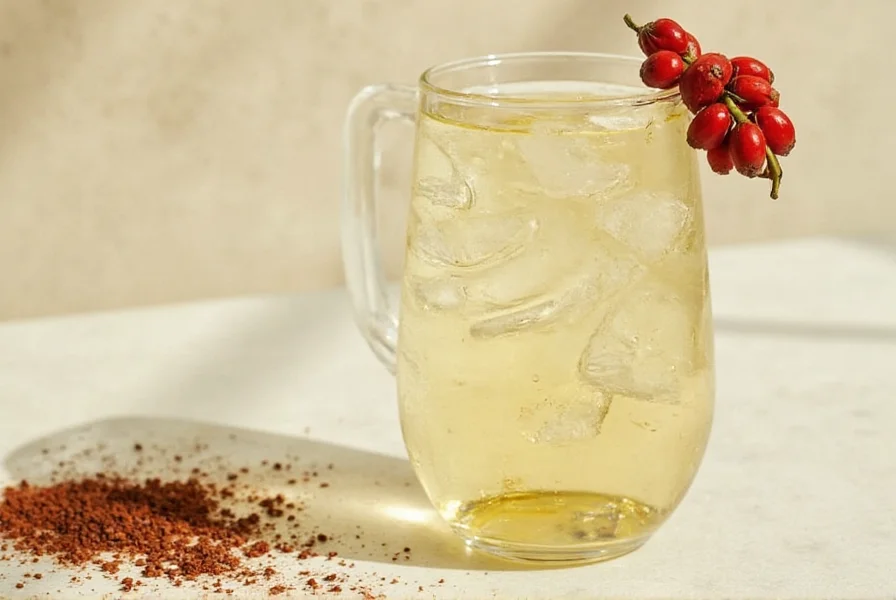For centuries, traditional medicine systems have utilized cloves for their therapeutic properties. Modern research is now validating many of these traditional uses, particularly when cloves are consumed as clove water—a simple preparation that extracts beneficial compounds into water. This article examines the evidence-based benefits of drinking clove water, proper preparation methods, and important safety considerations.
What Exactly is Clove Water?
Clove water is a herbal infusion created by soaking or boiling Syzygium aromaticum (true cloves) in water. This process extracts bioactive compounds, primarily eugenol (which makes up 70-90% of clove essential oil), along with other beneficial phytochemicals. Unlike clove essential oil, which requires dilution, clove water provides a milder concentration of these compounds suitable for regular consumption.
Traditional preparation methods vary across cultures—from Ayurvedic practices in India to traditional Chinese medicine—but typically involve either:
- Cold infusion: Soaking 4-5 whole cloves in room temperature water overnight
- Hot infusion: Steeping cloves in boiling water for 10-15 minutes
- Decoction: Gently boiling cloves in water for 5-10 minutes
| Preparation Method | Time Required | Eugenol Concentration | Best For |
|---|---|---|---|
| Cold Infusion | 8-12 hours | Moderate | Daily maintenance, sensitive stomachs |
| Hot Infusion | 10-15 minutes | High | Immediate benefits, immune support |
| Decoction | 5-10 minutes | Very High | Therapeutic use (short-term only) |
Scientifically Supported Health Benefits of Clove Water
Powerful Antioxidant Properties
Multiple studies confirm that clove water contains significant antioxidant compounds. Research published in the Journal of Agricultural and Food Chemistry found cloves have one of the highest antioxidant capacities among common spices—30 times higher than blueberries. The primary antioxidant, eugenol, helps neutralize free radicals that contribute to cellular damage, potentially reducing oxidative stress throughout the body. Regular consumption of clove water for antioxidant benefits may support overall cellular health and longevity.
Anti-Inflammatory Effects
The anti-inflammatory properties of clove water stem primarily from eugenol's ability to inhibit inflammatory pathways. A 2020 study in Phytotherapy Research demonstrated that eugenol significantly reduced markers of inflammation in human cell studies. This makes clove water potentially beneficial for managing chronic inflammation associated with conditions like arthritis. When exploring clove water benefits for inflammation, researchers note that consistent, moderate consumption yields better results than occasional high doses.
Oral Health Improvement
One of the most well-documented benefits of drinking clove water relates to oral health. The antimicrobial properties of eugenol effectively combat oral pathogens responsible for bad breath, gum disease, and tooth decay. A clinical trial published in the Journal of Indian Society of Pedodontics and Preventive Dentistry found that a clove mouthwash significantly reduced dental plaque and gingivitis. For those seeking natural clove water benefits for teeth and gums, swishing the cooled infusion in your mouth for 30 seconds before swallowing provides targeted benefits.
Blood Sugar Regulation
Emerging research suggests clove water may help regulate blood glucose levels. A study in the Journal of Diabetes Research found that clove extract improved insulin sensitivity in animal models. While human studies are limited, the chromium content in cloves (approximately 0.3 mg per gram) may contribute to better carbohydrate metabolism. Individuals researching clove water for blood sugar control should understand it complements—but doesn't replace—standard diabetes management.
Digestive Support
Traditional medicine has long used clove water for digestive issues, and modern science provides some explanation. Eugenol stimulates digestive enzyme production while reducing intestinal spasms. Research in Food Science & Nutrition indicates cloves may help alleviate bloating and improve nutrient absorption. For those exploring how to make clove water for digestion benefits, consuming it 20 minutes before meals appears most effective based on clinical observations.
How to Prepare Clove Water Properly
Creating effective clove water requires attention to detail. Here's a science-backed preparation method:
- Use 4-5 high-quality, organic whole cloves (not powder)
- Add to 8 ounces (240ml) of filtered water just off the boil
- Cover and steep for exactly 10-15 minutes (longer increases potency but also potential side effects)
- Strain the liquid into a cup
- Optionally add a squeeze of lemon or small piece of fresh ginger
- Consume while still warm, preferably in the morning on an empty stomach
The optimal time to drink clove water appears to be first thing in the morning, as this aligns with natural circadian rhythms for metabolism and digestion. For those specifically interested in clove water for weight loss benefits, morning consumption may support metabolic function throughout the day, though research specifically linking clove water to significant weight loss remains limited.

Important Safety Considerations and Side Effects
While generally safe when consumed in moderation, clove water does carry potential risks:
- Dental sensitivity: Undiluted clove oil can damage tooth pulp, but properly prepared clove water rarely causes this issue
- Bleeding risk: Eugenol has mild anticoagulant properties—avoid if taking blood thinners or before surgery
- Digestive upset: Excessive consumption (more than 1 cup daily) may cause heartburn or nausea
- Pregnancy concerns: High doses may stimulate uterine contractions; pregnant women should consult doctors before regular use
The maximum safe daily intake appears to be one cup of properly prepared clove water. Those with clove allergies, liver conditions, or scheduled surgeries should avoid it. When considering clove water side effects and precautions, remember that "natural" doesn't always mean risk-free—moderation is key.

Conclusion: Evidence-Based Approach to Clove Water Benefits
Clove water offers several evidence-supported health benefits, primarily due to its high eugenol content. The most well-documented advantages include improved oral health, antioxidant protection, and anti-inflammatory effects. While traditional uses suggest broader applications, scientific validation remains strongest for these specific areas.
For those exploring the health benefits of drinking clove water daily, consistency matters more than quantity. One properly prepared cup each morning provides optimal benefits while minimizing potential side effects. Remember that clove water should complement—not replace—conventional medical treatments, especially for serious health conditions.
As research continues to evolve, we may discover additional applications for this ancient remedy. Until then, enjoying clove water as part of a balanced approach to wellness represents a sensible integration of traditional wisdom and modern science.











 浙公网安备
33010002000092号
浙公网安备
33010002000092号 浙B2-20120091-4
浙B2-20120091-4